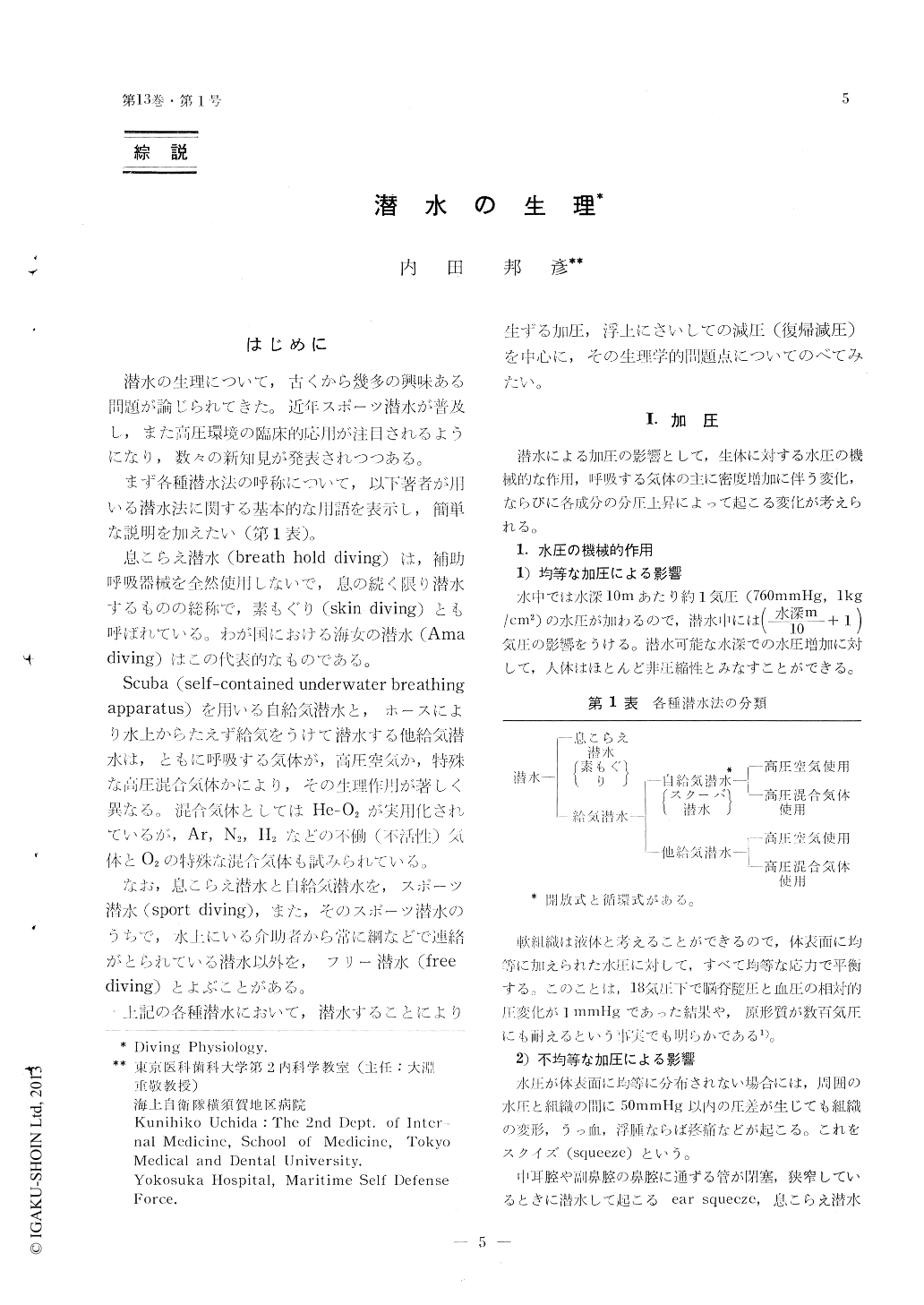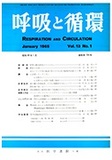Japanese
English
- 有料閲覧
- Abstract 文献概要
- 1ページ目 Look Inside
はじめに
潜水の生理について,古くから幾多の興味ある問題が論じられてきた。近年スポーツ潜水が普及し,また高圧環境の臨床的応用が注目されるようになり,数々の新知見が発表されつつある。
まず各種潜水法の呼称について,以下著者が用いる潜水法に関する基本的な用語を表示し,簡単な説明を加えたい(第1表)。
Recent development of the diving physiologywas reviewed, in regard to the effects ofincreased pressure, and of decompression.
When diver goes under water, his tissues areunaffected by the changes in pressure, actingas if they were fluid within fluid. on the contra-ry, the air or breathing mixture which thelungs contain is subject to Boyle,s law, andthen increased intra-alveolar pressure resultsin a completely new situation as far asgaseous interchange with the blood and tissuesis concerned. The diving Physiology is builtround this fundamental consideration, and thusa knowledge of changes in air density and anappreciation of the effects of increased partialpressures of nitrogen, oxygen, and carbon di-oxide are paramount importance.
When diver comes up, the results of decom-pression the gases which with increased partiatpressure dissolve in excess in his blood must bepaid specisl attention. The problem of decom-pression revolves round the retes at which varioustissues tend to saturate and the solubility ofgases concerned. The different solubility coeffi-cients which the various tissues of the bodyexhibit only add to the complexity of the problem.
Finally, the author did not forget to add thatdiving physiology is a relatively new field inwhich, though there is a good foundation offactual knowledge, much is still speculation.

Copyright © 1965, Igaku-Shoin Ltd. All rights reserved.


